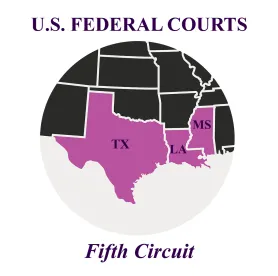Last week we told you about Judge Alan Albright’s determination to keep trying patent cases. He had a trial scheduled for January in Austin, where we had transferred the case pursuant to 28 U.S.C. § 1404 while leaving himself as the assigned judge. Trials are not being held in the Austin courthouse, however, so he transferred the case back to Waco.
Now the defendant has moved to postpone the trial until after March, attaching a declaration from the Chief of the Division of Infectious Diseases at Baylor University Medical Center stating that the current state of the pandemic “poses a significant potential risk to the health, safety and life of participants in a trial starting January 11, 2021, in Waco or Austin, Texas, as well as to the communities in the Division where trial is held and communities in places where out-of-state participants will return after trial.” According to the declaration, there is a 74% chance of “at least one person having COVID-19 from a group of 50 people gathered in McLennan County [which includes Waco].”
The defendant notes that its trial team “includes persons who are at high risk of severe illness or death from COVID-19 or have family members in high-risk groups. Absent a continuance, trial will require these persons—and numerous other attorneys, staff, witnesses, and client representatives—to travel to trial, placing themselves, their families, the Court and its staff, and the local community at risk. It may also force some witnesses to testify remotely.”
The plaintiff opposes the motion.
Meanwhile, most interestingly, the defendant has filed a petition for writ of mandamus with the US Court of Appeals for the Federal Circuit. The petition argues that the re-transfer to Waco was improper under the governing US Court of Appeals for the Fifth Circuit standard. There’s a lot going on between the lines, however.



 />i
/>i

